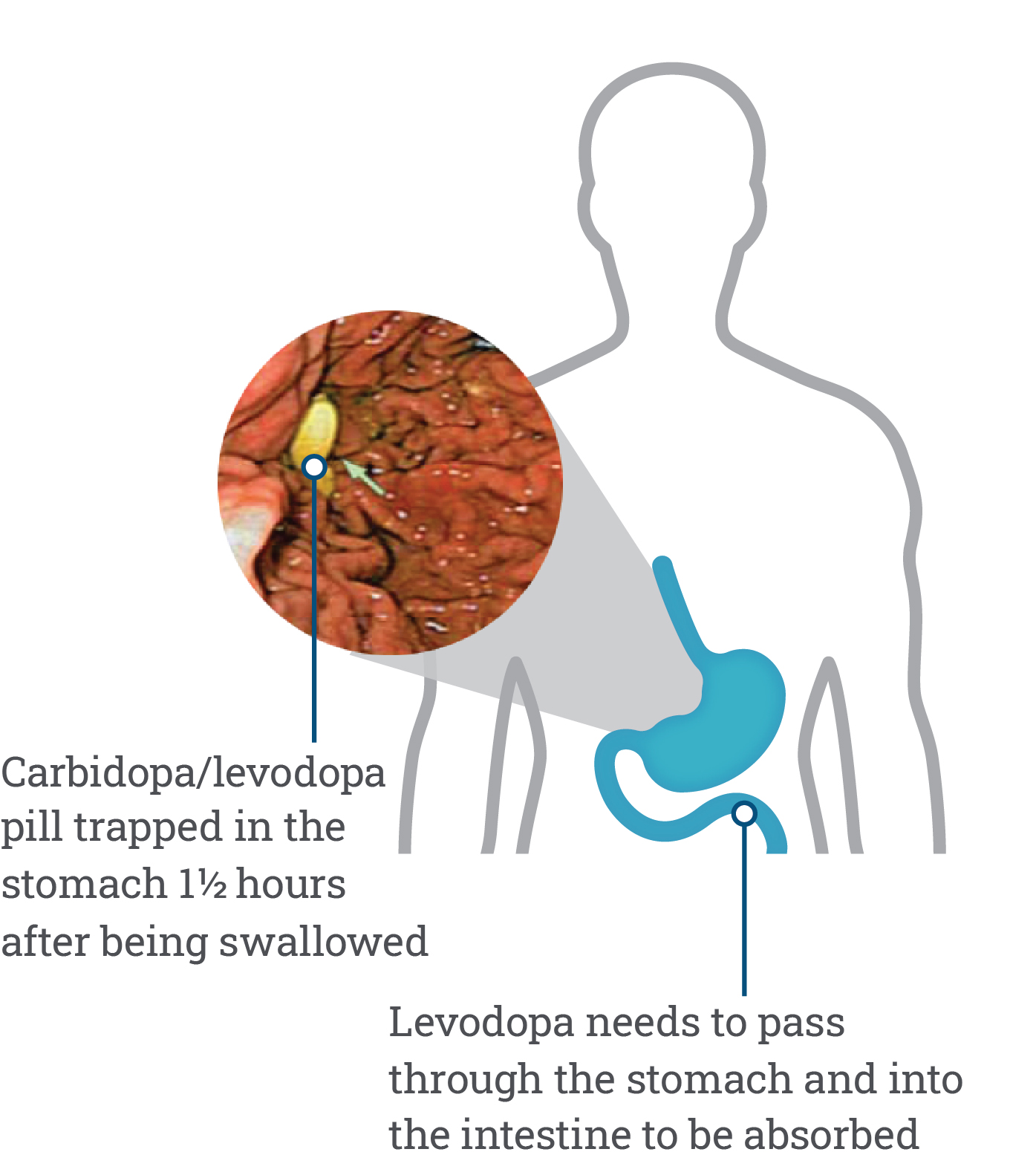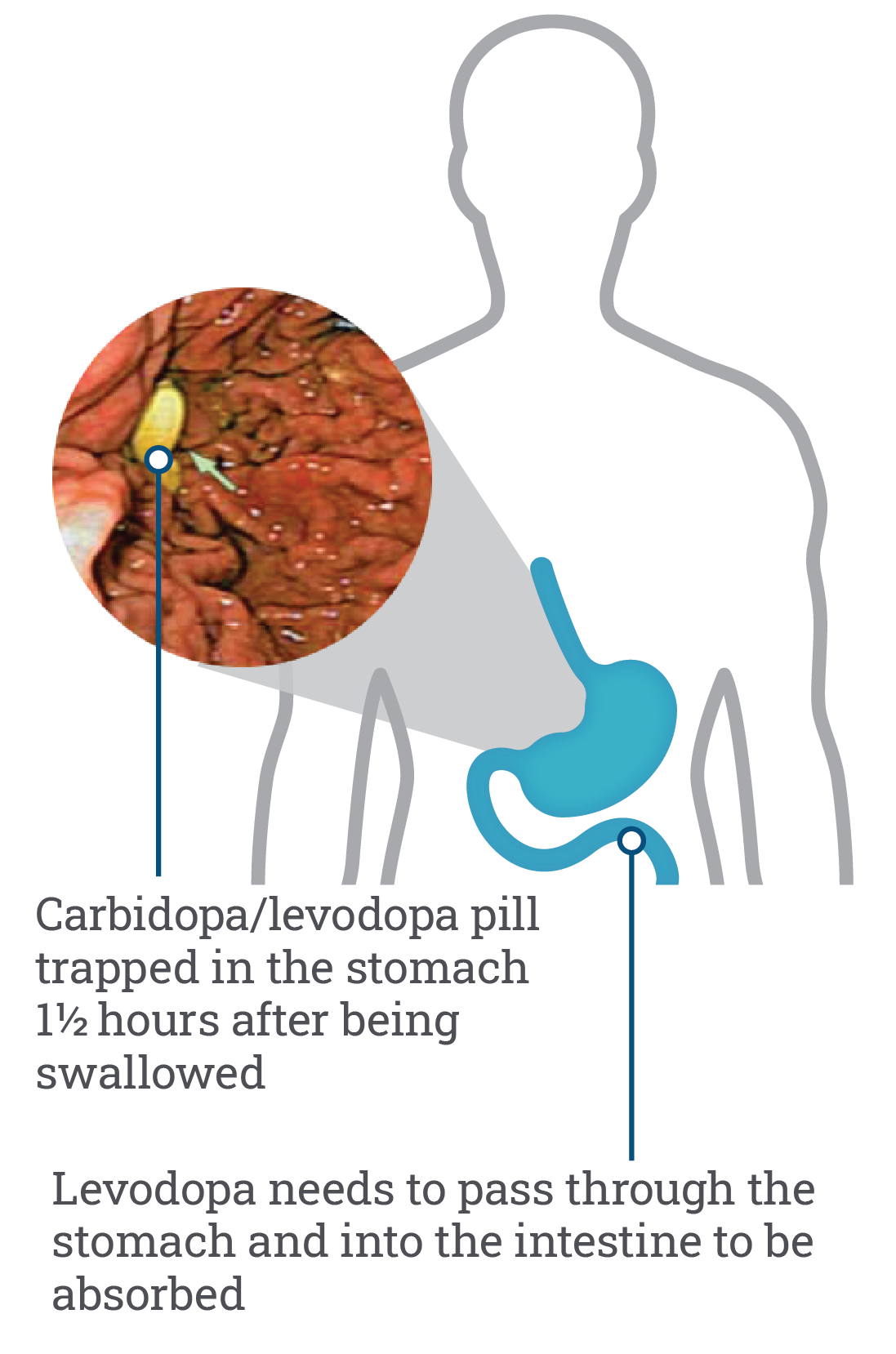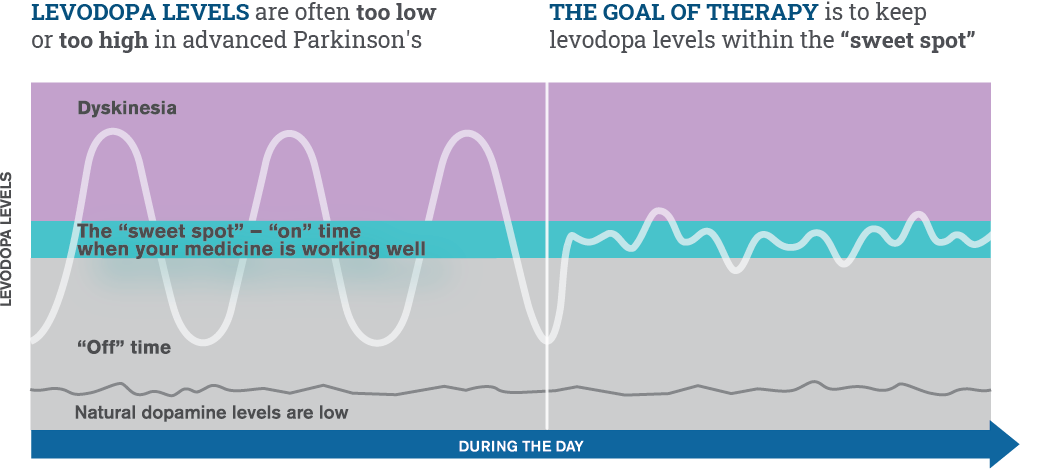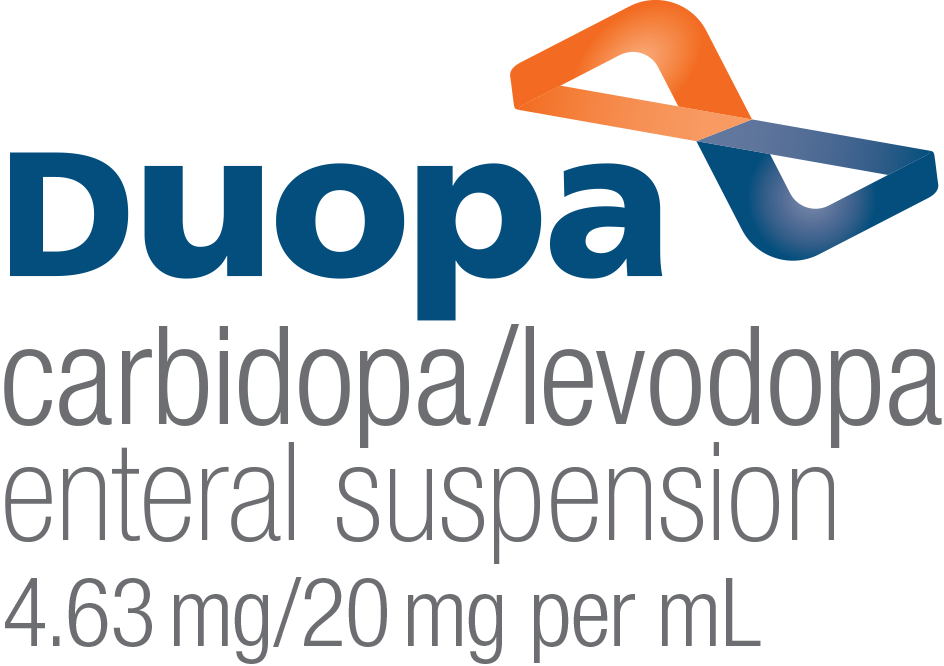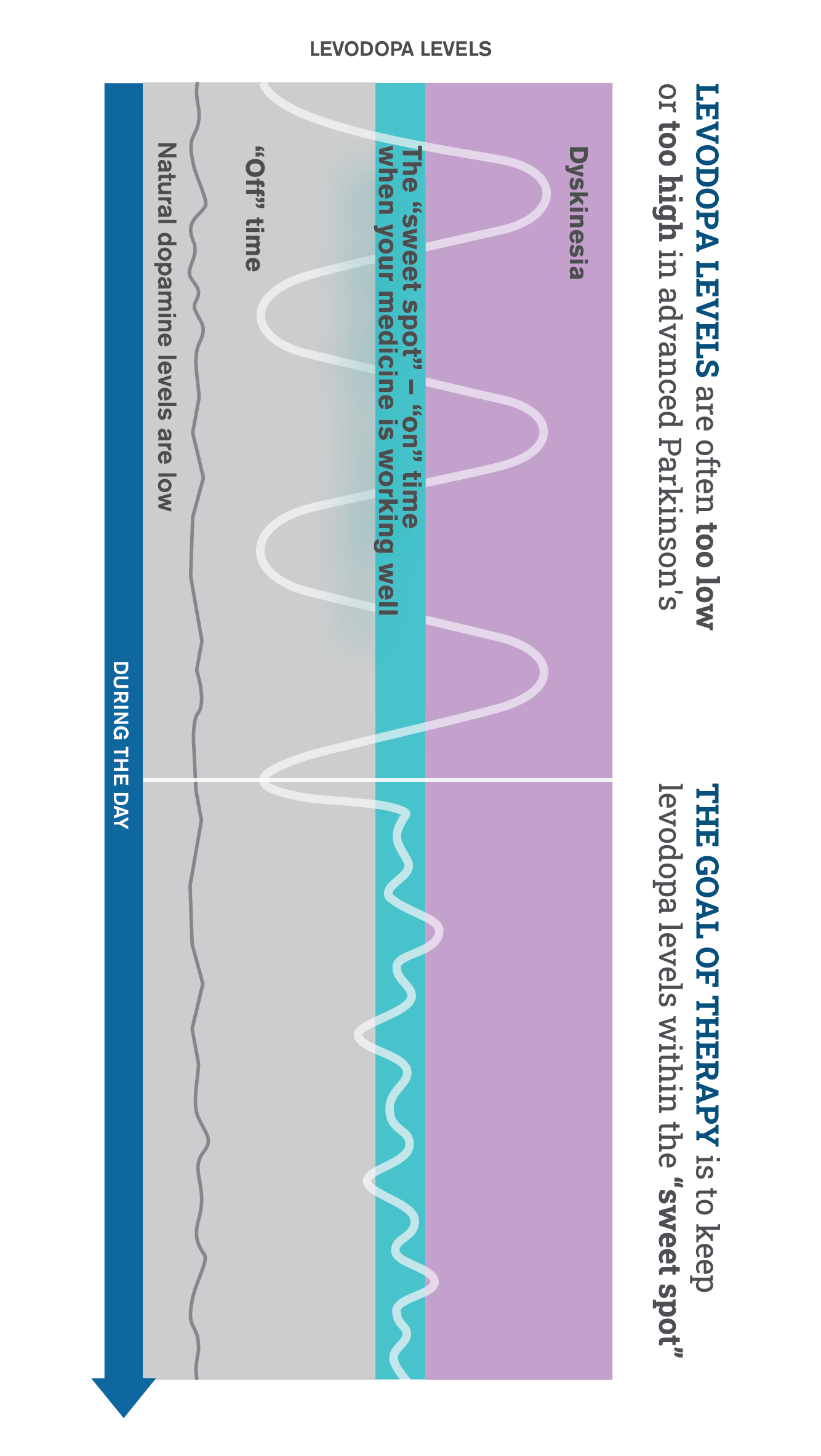Important Safety Information
What is the most important safety information I should know about DUOPA?
- Stomach and intestine (gastrointestinal) problems and problems from the procedure you will need to have to receive DUOPA (gastrointestinal procedure-related problems) may occur. Some of these problems may require surgery and may lead to death.
- Serious side effects may include: a blockage of your stomach or intestines (bezoar); stopping movement through intestines (ileus); drainage, redness, swelling, pain, feeling of warmth around the small hole in your stomach wall (stoma); bleeding from stomach ulcers or your intestines; inflammation of your pancreas (pancreatitis); infection in your lungs (pneumonia); air or gas in your abdominal cavity; skin infection around the intestinal tube, pocket of infection (abscess), or infection in your blood (sepsis) or abdominal cavity may occur after surgery; stomach pain, nausea, or vomiting.
- Tell your healthcare provider right away if you have any of the following symptoms of stomach and intestine problems and gastrointestinal procedure-related problems: stomach (abdominal) pain; constipation that does not go away; nausea or vomiting; fever; blood in your stool; or a dark tarry stool.
Your healthcare provider will talk to you about the stoma procedure. Before the stoma procedure, tell your healthcare provider if you ever had a surgery or problems with your stomach.
Talk to your healthcare provider about what you need to do to care for your stoma. After the procedure, you and your healthcare provider will need to regularly check the stoma for any signs of infection.
Do not take DUOPA if you currently take or have recently taken (within 2 weeks) a medication for depression called a non-selective monoamine oxidase (MAO) inhibitor. Ask your healthcare provider or pharmacist if you are not sure if you take an MAO inhibitor.
Tell your healthcare provider about all the medicines you take, including prescription and over-the-counter medicines, vitamins, and herbal supplements. Using DUOPA with certain other medicines, including medications for high blood pressure, MAO inhibitors, antipsychotics, metoclopramide, isoniazid, and iron or vitamin supplements, may cause serious side effects. High-protein foods may affect how DUOPA works. Tell your healthcare provider if you change your diet.
DUOPA may cause serious side effects. Talk to your doctor before starting DUOPA and while on DUOPA if you have had or have any of these:
- Falling asleep during normal daily activities without warning. DUOPA may cause you to fall asleep while you are doing daily activities such as driving, which may result in an accident. This can happen as late as one year after starting DUOPA. Do not drive or operate machinery until you know how DUOPA affects you. Tell your healthcare provider if you take medicines that can make you sleepy, such as sleep medicines, antidepressants, or antipsychotics.
- Low blood pressure when you stand or sit up quickly. After you have been sitting or lying down, stand up slowly to help reduce dizziness, nausea, sweating, or fainting until you know how DUOPA affects you.
- Seeing, hearing, or feeling things that are not real (hallucinations).
- Unusual urges. Some people taking medicines for Parkinson's disease, including DUOPA, have reported urges such as excessive gambling, compulsive eating, compulsive shopping, and increased sex drive.
- Depression and suicide. DUOPA can cause or worsen depression. Pay close attention to changes in your mood, behavior, thoughts, or feelings. Call your healthcare provider right away if you feel depressed or have thoughts of suicide.
- Uncontrolled sudden movements (dyskinesia). If you have new dyskinesia or your dyskinesia gets worse, tell your healthcare provider. This may be a sign that your dose of DUOPA or other Parkinson's medicines may need to be adjusted.
- Progressive weakness or numbness or loss of sensation in the fingers or feet (neuropathy).
- Heart attack or other heart problems. Tell your healthcare provider if you have experienced increased blood pressure, a fast or irregular heartbeat, or chest pain.
- Abnormal blood tests. DUOPA may cause changes in certain blood tests, especially certain hormone and kidney function blood tests.
- Worsening of the increased pressure in your eyes (glaucoma). The pressure in your eyes should be checked after starting DUOPA.
Do not stop using DUOPA or change your dose unless you are told to do so by your healthcare provider. Tell your healthcare provider if you develop withdrawal symptoms such as fever, confusion, or severe muscle stiffness.
The most common side effects of DUOPA include: complications of tubing placement procedure, swelling of legs and feet, nausea, high blood pressure (hypertension), depression, and mouth and throat pain.
Please see the full Prescribing Information including Medication Guide for additional information about DUOPA. Talk to your healthcare provider if you have questions.
You are encouraged to report negative side effects of prescription drugs to the FDA. Visit www.fda.gov/medwatch or call 1-800-FDA-1088.
If you are having difficulty paying for your medicine, AbbVie may be able to help. Visit AbbVie.com/myAbbVieAssist to learn more.
US-DUOP-200201
